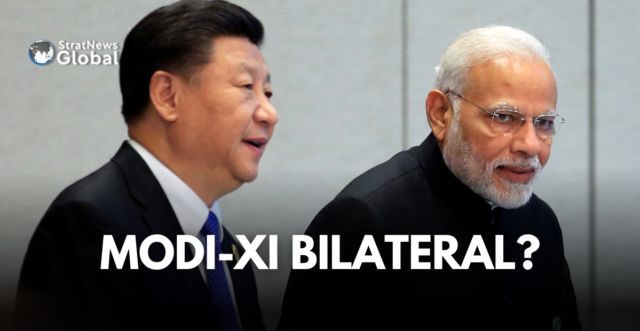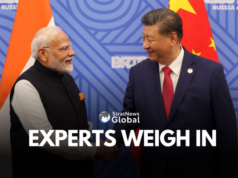Call it a coincidence, but the announcement of Prime Minister Modi attending the BRICS summit in Kazan, Russia, was made around same time a similar confirmatory announcement was made from Beijing about President Xi Jinping. The two-day event gets off the ground on Oct 22.
The obvious next question: will the two leaders meet for a bilateral? They have not met since the Galwan clash of June 2020 set relations into a steep dive. This could be an opportunity to try and get the relationship back on track, perhaps resume formal contacts and dialogue with a view to de-escalating on the Line of Actual Control. One waits to see what happens.
India’s Concerns Over De-dollarization And China’s Influence
Other issues that are expected to figure at the summit, where India has an interest, is the drive to “de-dollarize”, meaning move away from the US dollar in trade in preference for other currencies. This is something Russia and China are actively pushing but India is not in favour.
External Affairs Minister S Jaishankar “India has never actively targeted the dollar. That’s not part of our economic, political, or strategic policy. Some others may have done so. What I will say is that we have a natural concern,” Jaishankar explained.
Any global shift away from the US dollar could disrupt India’s growth and enhance China’s influence globally. Beijing is also known to be keen on making the yuan an international currency on par with the dollar. Any move in that direction will only enhance China’s economic and political standing to India’s disadvantage.
Key Focus Areas Of The BRICS Summit
The summit will see the participation of new members. Does that necessarily benefit India? The jury is out on that. But important to note that the deal to develop Chabahar Port in Iran was done bilaterally. It is expected to boost Indian exports by as much as $1 trillion to the Gulf and Central Asia. Nevertheless, as a forum where one can meet and talk to a number of national leaders, BRICS has its value.
The summit is expected to address climate change, trade, and geopolitical tensions, particularly the war in Ukraine. It underscores BRICS’ growing role as a platform for international cooperation, making the summit pivotal in shaping future partnerships.
Uneven Trade Growth And BRICS Challenges
The trade growth within BRICS has also heavily favoured China, with its size and foreign policy dominance often overshadowing other members. China’s aggressive stance signals a desire to influence BRICS members rather than cooperate with its regional rivals like India.
Analysts acknowledge that while BRICS has some advantages, such as better communication and reduced transaction costs, these benefits could be achieved through other forums.
Research Associate at StratNewsGlobal, A keen observer of #China and Foreign Affairs. Writer, Weibo Trends, Analyst.
Twitter: @resham_sng





